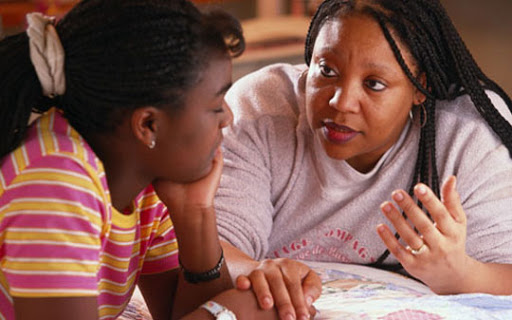By Rita Selman.

Alfie Pattern was 13 years old, the mother of his new born was 15 years old. The birth of their child made Britons question their moral values and debate on what they were doing wrong. It doesn’t require the wisdom of a sage to know that these two would have benefited from a good lesson on sex education. Perhaps their parents were putting off the discussion till they turned sixteen.
Almost every parent balk at having the talk with their young teenager. They are either too embarrassed to navigate such delicate waters or they are under the misapprehension that their wards are still too innocent and tender to absorb information about sex.
But as the times change, the need to educate the youth on matters of sex education becomes more apparent. In the nineties, sex education was aimed at preventing unwanted teenage pregnancies and the resultant abortions and avoidable deaths of some of the young women.
In the following decade, sex education became one of the slogans in the campaign against transmission of HIV. Alarming statistics show that a high percentage of the new HIV infections occur in teenagers, some of whom are as young as fourteen years old. Before the end of this 2000’s, sex education would also serve as an avenue for informing young people of the different sexual orientations of different people.
Scientists explain that the sex hormones in a human body become active around the age of twelve. However, with cable Tv and the internet bringing all types and forms of uncensored sexual frivolities right into the living room, sexual experimentation has been found in people much younger than twelve. Also, it has been found that children are attaining puberty at a much earlier age now than fifty years ago.

The general consensus is that there must be sex education for young people. But the age when this can be done remains a subject of dispute among concerned parties. Some parents feel that exposing their children to sex talk simplifies the subject and encourages them to experiment or venture into sexual liaisons since they have received sex education and are therefore confident that they can protect themselves.
On the other hand, there are continuous reports of street hawkers who are always children between the ages of five and ten being sexually abused; raped, sodomized etc, as the case may be.
The fact is that the opportunities for someone to sexually exploit your child are endless. It may occur in his school, at play with fellow children, at home with nanny, housekeeper, neighbors or even a relation. Children are often the target of sexual perverts because they are at that most vulnerable stage where they can be cajoled, threatened or bribed into keeping quiet about a sexual violation of their person.
On the positive side, children lack the guile of adults and would report and event clearly and factual. Also, children function much like robots and would imitate and do exactly as they are told.
Sex education is as important for your child as it is for your teenager. Arming your child with the proper information will enable him report any unusual behavior to you at once. Making your teenager aware of the risks of gay relationships in single sex boarding schools and other risks in co-educational schools will ensure that he makes informed choices.
Proper sex education equips your child with the necessary knowledge to avoid the very unpleasant and traumatic experience of sexual abuse. Therefore, it is never too early to begin having THAT talk!



